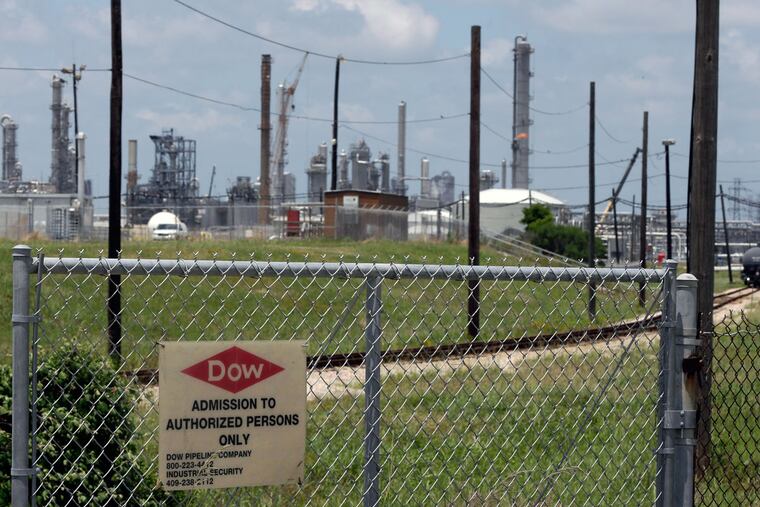Dow, Dupont joining just to split?
Shares of Dow Chemical Co. and DuPont Co. each jumped 12 percent Wednesday to near-record highs, on reports of advanced talks to merge the historic firms, then break the combined entity into three pieces.

Shares of Dow Chemical Co. and DuPont Co. each jumped 12 percent Wednesday to near-record highs, on reports of advanced talks to merge the historic firms, then break the combined entity into three pieces.
The breakup proposal would split the resulting mega-chemical conglomerate into pesticide, materials, and plastics firms.
Merging and splitting to enrich hedge funds and other wealthy investment speculators, while shutting older plants and laying off headquarters staff, is common in aging U.S. industries. The market's happy reaction to this potential combination valued at about $120 billion shows that multibillion-dollar enterprises with household names are vulnerable, too. The companies together have more than 300 years of history.
"Why go to all the trouble and expense of merging them merely in order to break them up?," debt analyst Carol Levenson asked Wednesday in a report to clients of Gimme Credit L.L.C.
"This seems to be an idea born on Wall Street to garner investment banking fees," she said.
Midland, Mich.-based Dow (with about $50 billion in annual sales) and Wilmington-based DuPont ($30 billion in annual sales), which are frequent competitors, both face declining farm sales and increased competition from rival manufacturers in China and other emerging markets.
They also face pressure from billionaire activist investors who would profit greatly from seeing both conglomerates cut in pieces, old facilities shut, jobs destroyed, and new profits paid to them as dividends.
Nelson Peltz of Trian Fund Management has pressed new DuPont boss Edward Breen to cut costs and divest businesses, while fellow raider Daniel Loeb of Third Point Management has extracted concessions from Dow CEO Andrew Liveris.
Peltz controls just 3 percent of DuPont shares, while Loeb controls only 2 percent of Dow stock. But both men can count on support from mutual funds and midsize investment firms run by managers who want DuPont and Dow shares to rise fast, instead of waiting for research and development visions that might or might not lead to profits years ahead. Peltz proved the point by nearly ousting director candidates backed by former DuPont CEO Ellen Kullman in a shareholders' vote last spring. She resigned in October after reporting disappointing sales and earnings, then Breen took the helm.
Though Dow is larger, DuPont is more profitable, and the companies were each valued at almost $60 billion on the New York Stock Exchange before merger talk leaked Tuesday evening. DuPont stock closed Wednesday at $74.49 a share, while Dow closed at $56.97 a share, the highest price since 1980.
Since he replaced Kullman as DuPont's CEO, Breen has canceled construction and software projects and combined business groups, while continuing to approve strategic acquisitions. He has projected cuts to DuPont headquarters and finance staff, but praised the company's research and global sales operations.
Breen told investors last month that he and rival CEOs have been talking about combining pesticide businesses to cope with weak demand.
A full-fledged corporate merger and industrial spin-offs - such as the separations Breen performed while CEO at Princeton-based Tyco International in the 2000s - could prove more disruptive for customers and employees.
The prospect is more unnerving for survivors of earlier consolidations at DuPont headquarters in Wilmington and Dow offices in Michigan. Dow last year shut its former division headquarters at the ex-Rohm & Haas building in Center City Philadelphia, though it still runs factories and offices in the region.
A deal proposal could still unravel. Neither firm would comment Wednesday.
DuPont and its financial partners may have less to gain from a merger than Dow, analyst Levenson concluded: "DuPont, for all its management turmoil and activist pressure, is a stronger credit than Dow, but any potential lift for Dow bondholders could be wiped out when the company is split up."
(215)854-5194@PhillyJoeD